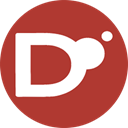Top Quorum Alternative Programming Languages to Consider
Quorum is a unique "evidence-based" programming language, initially designed for accessibility and ease of use, particularly for visually impaired users. It has evolved into a general-purpose language, compiling to Java Bytecode for the JVM and JavaScript for web execution. While innovative, developers often seek alternatives based on specific project needs, existing skill sets, or desired ecosystems. This article explores some of the best Quorum alternative programming languages available today.
Top Quorum Alternatives
Whether you're looking for a language with broader community support, different paradigms, or specific performance characteristics, there's a strong Quorum alternative out there for you. Here are some of the most popular and effective choices:

Python
Python is an interpreted, interactive, and object-oriented programming language known for its extraordinary clarity and versatility. It's a free and open-source Quorum alternative, supported across multiple platforms including Mac, Windows, Linux, and more. Its high-level nature, dynamic typing, garbage collection, and modular system make it highly adaptable for various applications.

Java
Java is a general-purpose, concurrent, class-based, and object-oriented programming language, similar to Quorum in its JVM compatibility. It's a free personal and open-source Quorum alternative, widely available on Mac, Windows, Linux, and Android. Its cross-platform capability, object-oriented design, and automatic garbage collection make it a robust choice for enterprise-level applications.

C (programming language)
C is a foundational general-purpose programming language, widely used and highly influential. As a free and open-source Quorum alternative, it runs on Mac, Windows, Linux, Android, and many other platforms. Its ability to work at the kernel level, compiled nature, and manual memory management make it ideal for systems programming and performance-critical applications.

C++
C++ is a powerful, statically typed, multi-paradigm, and compiled programming language, often considered an intermediate-level language. It is a free and open-source Quorum alternative available on Mac, Windows, Linux, and BSD. Its compiled nature, systems programming capabilities, and object-oriented design offer fine-grained control and high performance, making it suitable for complex software development.

C#
C# is a multi-paradigm programming language from Microsoft, known for strong typing, imperative, declarative, functional, generic, and object-oriented capabilities. It's a free and open-source Quorum alternative for Mac, Windows, Linux, and BSD. Its compiled nature and robust object-oriented features make it a strong choice for developing a wide range of applications, especially within the .NET ecosystem.

Lua
Lua is a powerful, fast, lightweight, and embeddable scripting language. This free and open-source Quorum alternative is available on Mac, Windows, Linux, Android, and iPhone, among others. Its simple procedural syntax combined with powerful data description constructs makes it excellent for scripting, configuration, and embedding within larger applications.

Perl
Perl is a high-level, general-purpose, interpreted, and dynamic programming language with a long history of development. As a free and open-source Quorum alternative, it runs on Mac, Windows, Linux, BSD, and Haiku. Its strong shell integration and versatile features make it a popular choice for text processing, system administration, and web development.

Haskell
Haskell is an advanced purely-functional programming language, known for rapid development and cutting-edge research. This free and open-source Quorum alternative is available on Mac, Windows, Linux, and BSD. Its functional paradigm, static typing, and tail call optimization provide a robust environment for developing reliable and concise code.

D (Programming Language)
D is a language with C-like syntax and static typing, combining efficiency, control, and modeling power with safety and programmer productivity. As a free and open-source Quorum alternative, it supports Mac, Windows, Linux, and BSD. Its features like contract programming, functional language support, and multiparadigm capabilities make it a versatile choice for various development needs.

Nim (programming language)
Nim is a statically typed, imperative programming language with a powerful macro system, designed for ultimate programmer power without compromising runtime performance. It's a free and open-source Quorum alternative, supporting Mac, Windows, Linux, and BSD. Its compiled nature, cross-platform capabilities, and object-oriented features offer a compelling solution for high-performance applications.
Ultimately, the best Quorum alternative depends on your specific project requirements, team expertise, and desired ecosystem. Each language listed offers unique strengths, from broad community support and extensive libraries to specific performance advantages. We encourage you to explore these options further to find the perfect fit for your next programming endeavor.